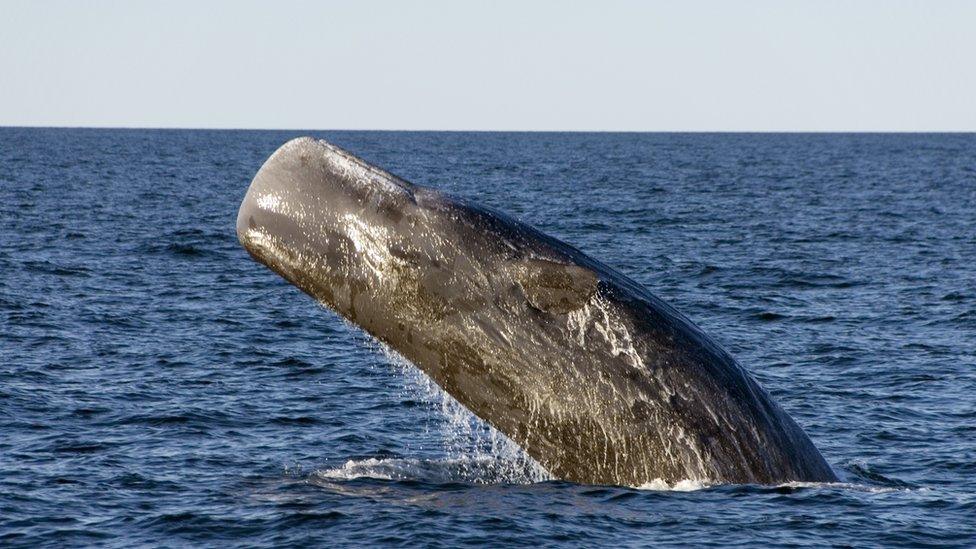Sperm whales beached in Skegness following Hunstanton death
- Published
People flocked to the beach to see the whales and photograph them
Three dead sperm whales washed up on a beach in Lincolnshire are believed to be from the same pod as a whale that died at Hunstanton.
HM Coastguard said two of the whales were found on a beach near Skegness at about 20:30 GMT on Saturday, while a third was discovered on Sunday morning.
The Cetacean Strandings Investigation Programme will examine the bodies.
The pod was spotted off the Norfolk coast on Friday before the Hunstanton whale became stranded and died.
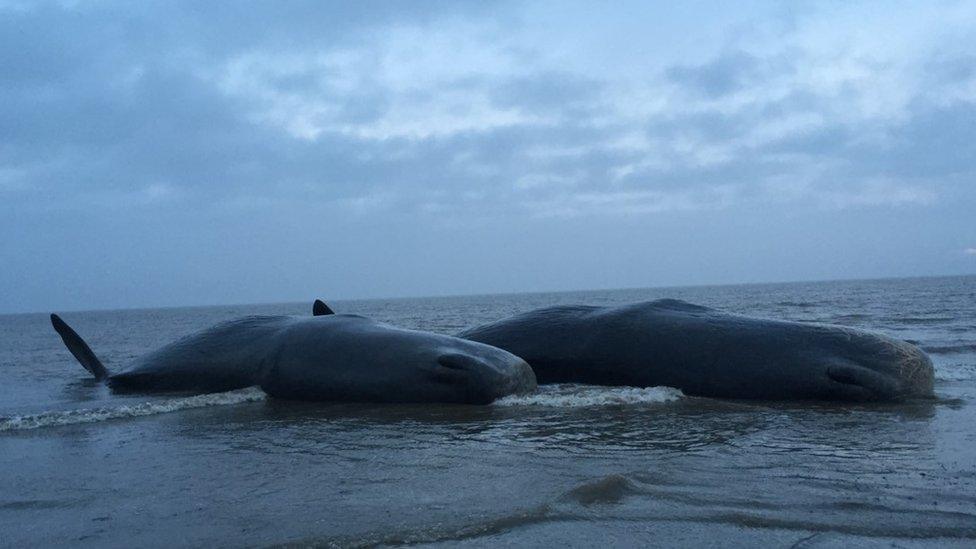
The first two Skegness whales were found by a nature reserve warden who told HM Coastguard
James Gilbert, from East Lindsey District Council, said the death of the whales was "unbelievably sad".
He added: "We had heard about the whale that came ashore in Norfolk, so we had an early insight that there may be potential for some to arrive on our coast as well.
"All three are massive, beautiful animals, and it's just such a shame to see them on the beach in that way."
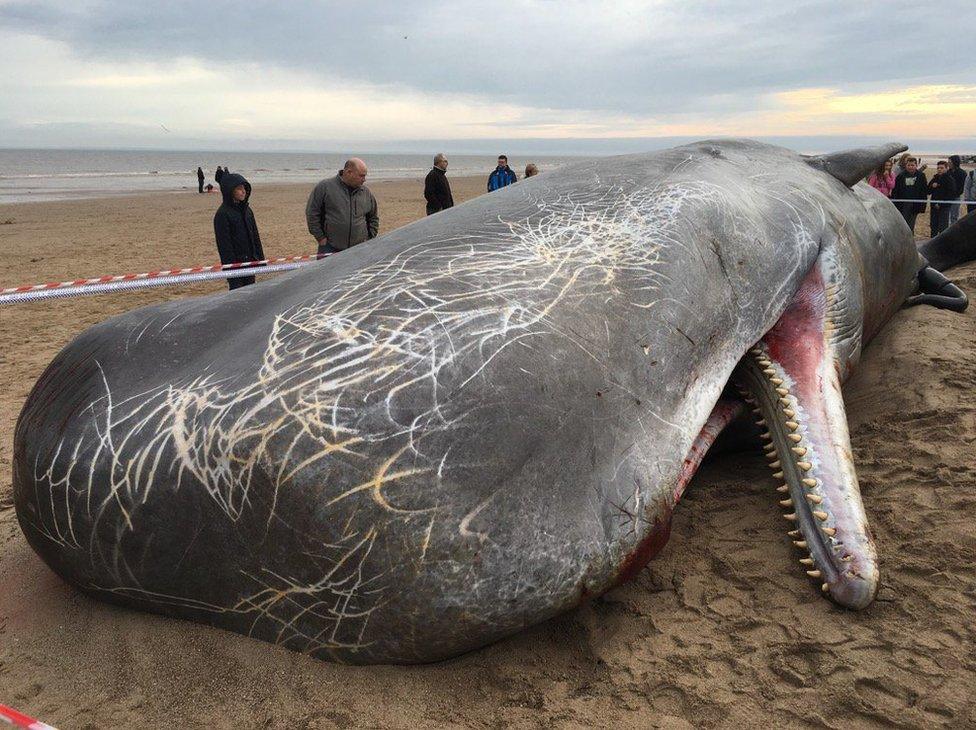
The whales were cordoned off to prevent people from touching them
One of the whales is at the end of Lagoon Walk, with the other two towards Gibraltar Point.
They were cordoned off to prevent people from touching the carcasses.


Mr Gilbert said the council needs to contact the relevant authorities to see if they want to examine the carcasses before they are removed.
"I know from previous occurrences they have wanted to do so, which does delay the process for us slightly in removing them from the beach, but our teams are geared up ready to do that as soon as they are given permission," he said.
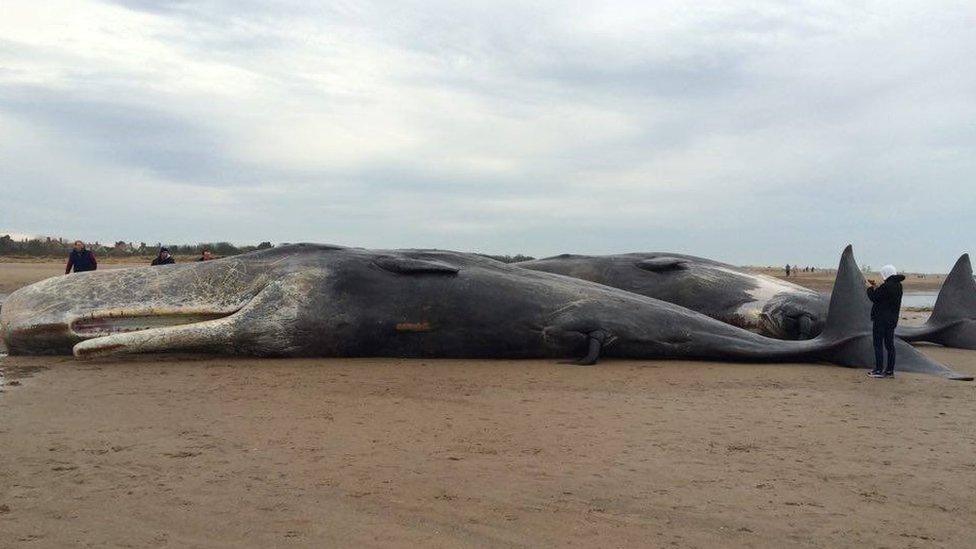
Two of the whales washed up on Saturday evening
The Maritime and Coastguard Agency said the Skegness whales are believed to be from the same pod as the Hunstanton whale, but the whereabouts of the rest of the pod is unknown at this stage.
UK Coastguard Richard Johnson said: "We believe the three whales at Skegness died at sea and then washed ashore.
"We are advising members of the public to stay away from the beach."
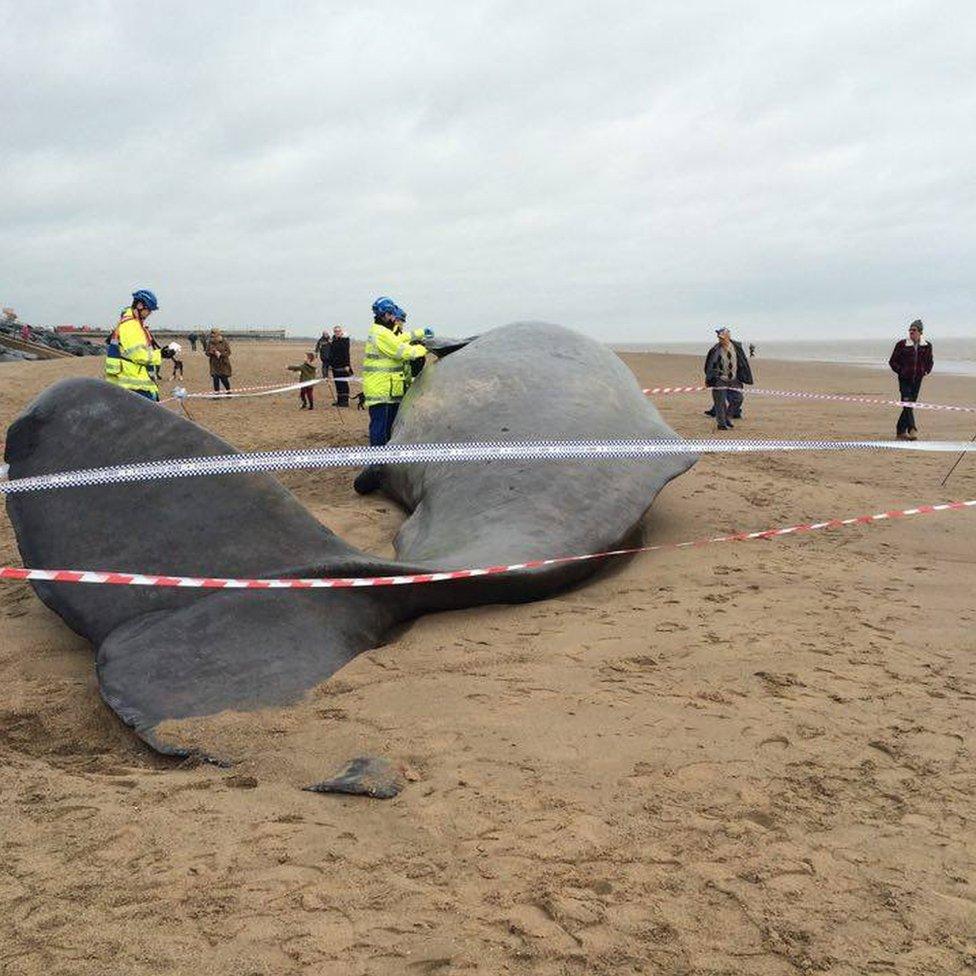
East Lindsey District Council is ready to remove the whales once they have been examined
Adam Holmes, the RNLI station press officer for Skegness, said the town was "as busy as a bank holiday" as crowds gathered to look at the bodies.
Scientists from the Cetacean Strandings Investigation Programme, which coordinates the investigation of all whale, dolphin and porpoise strandings in the UK, will carry out post-mortem examinations.
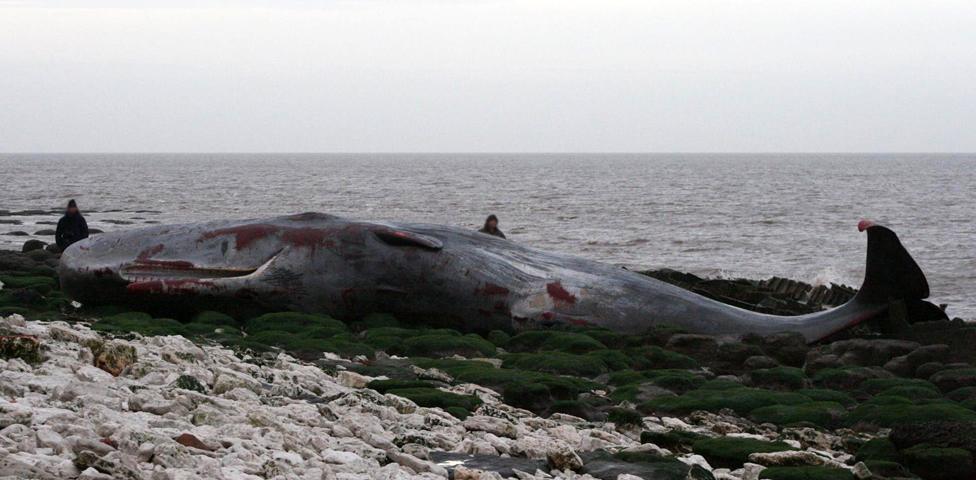
The RNLI, HM Coastguard and Hunstanton Sealife centre tried to save the whale in Hunstanton after it became stranded on Friday
Up to five whales were seen at Hunstanton on Friday before one of them became stranded. It died despite efforts to rescue it.
Rob Deaville, programme organiser from the Cetacean Strandings Investigation Programme, warned the others were also at "considerable risk" of being stranded.
His team has taken samples of skin, blubber, teeth and blood from the Hunstanton whale and will carry out similar tests on the ones at Skegness.
Sperm whales are deep sea animals and do not belong in the shallow waters of the North Sea.
He said: "Every year we get 600 strandings of cetaceans in the UK and a handful, about five or six a year, are sperm whales."
- Published23 January 2016
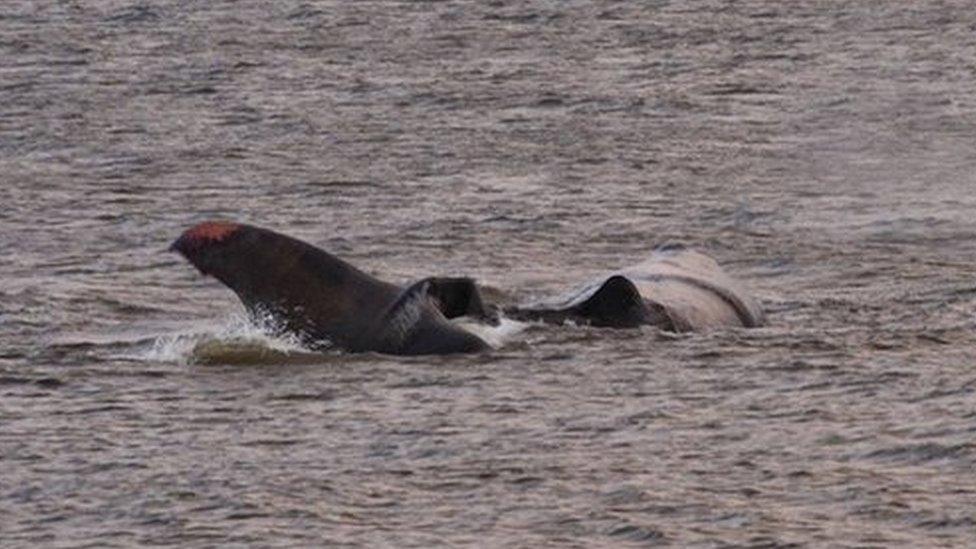
- Published22 January 2016
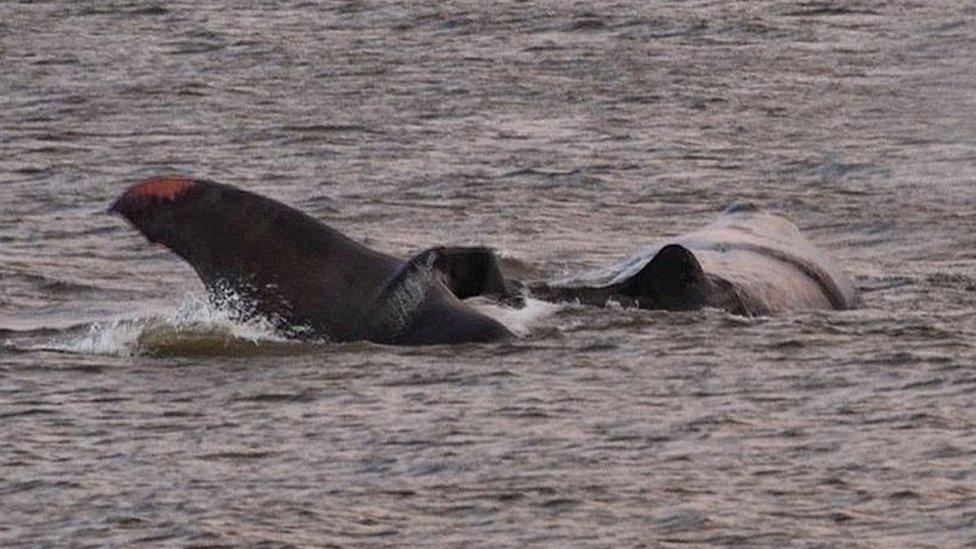
- Published18 September 2015
